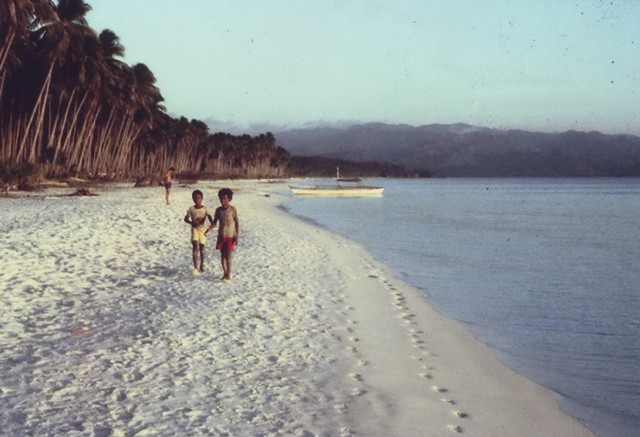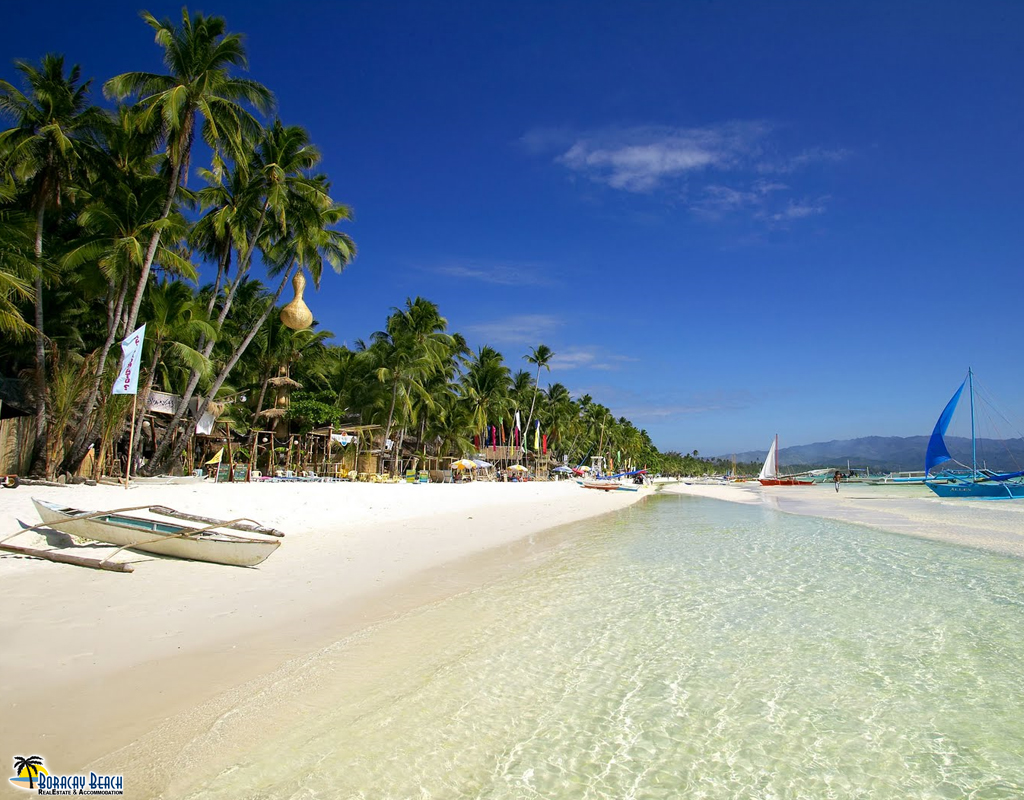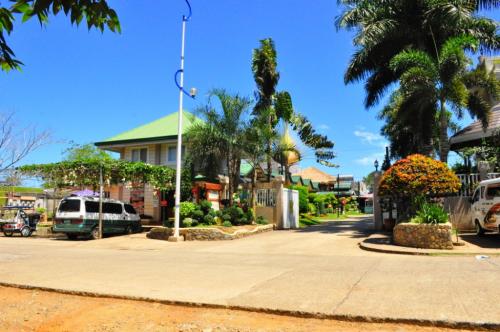The beautiful island of Boracay is now an image of vigorous tourist development, but to those privy to its past—a relic that cannot be reverted to no matter what—the island is on top of what it has to be, the number one island in Asia. But visitors to the island three or four decades ago could create a chiaroscuro that would display Boracay's virginity as a much missed quality more than its noise and action nowadays.

Before 1980s
The pre-1980 Boracay was a captivating paradise, an Eden that could qualify as a real treasure to anyone who discovered it. The island could instantly cure a tired visitor—then a trespasser to its sacrosanct peacefulness—and could convince anyone to stay longer, or even permanently. Only the Ati aborigines lived on the island, fishing and farming and owning the paradise without harming it.
In the early 1970s, Too Late the Hero, an Anglo-American war film, was shot on Boracay. Then, fresh ocean breeze wafted towards the shores, making the coconut trees lining the beach dance to its soft lulling. Purely white sand shone under the sun, and it had that incomparably fine quality that it would fall freely from the hands when played with. Just sitting by the shore in those days was an entrancing activity, for the waves would simultaneously break the silence with its lapping and captivate the eyes with its natural movement. The old Boracay was a virgin island: no trash, no commerce, no electricity.
The discovery
Jens Peter, a German writer, published a book about the history of Boracay island, describing and naming it as the most beautiful island in Asia. Then, with the several postcard photos he took at different locations, publicity took its zenith and Boracay started attracting backpackers. As the cliché goes, the rest was history.
The 1990s development
When the island funneled in visitors from different countries, local businesses started sprouting on the island to leverage on its newly acquired fame. Concrete lodgings replaced nipa huts, restaurants and shops awakened commerce, and electricity even hastened the island's development. Slowly, the sounds of insects and birds from the forests were replaced by loud music and chatters from visitors. The natives were driven back to give way to new inhabitants, who did their part in the drama by littering while putting up improvements here and there. Then, resorts in Boracay started occupying the green land, and hotels competed with or even belittled the height of the coconut trees.
The present Boracay

People who visited the island back in the '80s would describe the present Boracay as overdeveloped. The then line of trees and thick stroke of green visible from an oncoming boat is nowhere to be found—it has been stripped off and patched up with concrete restaurants and inns, some of them desperately donning a native look by using bamboo and wooden materials. The motionless island four decades ago is now full of hubbub from people draining the island's purity little by little. Loud music and strobe lights dominated at night, while in the morning, activities are held in a never-ending streak by the shores. Peace and quite are isolated within the corners of a hotel in Boracay, a contrast from the past where everything on the island speaks tranquility.
Many say that development is an inevitable phase, and Boracay has not been spared from its claws. Boracay real estate has been active more than ever, and there will come a time when all Boracay lot for sale will be sold to business people and individuals wanting their own piece of the once-virginal island. But with the speed the island is being tilled, what other tourists say might become a reality: the island is experiencing a slow death.
Author:
I am Kit Cruz. Travelling and photography are just my hobbies. I write articles about the paradise island of the Philippines named Boracay; sharing what this world class beach can offer - latest news and updates, reviews of cheap hotels in boracay and more. Check out more about Boracay on The Boracay Beach Magazine.


